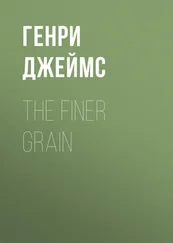Генри Джеймс - The Europeans
Здесь есть возможность читать онлайн «Генри Джеймс - The Europeans» — ознакомительный отрывок электронной книги совершенно бесплатно, а после прочтения отрывка купить полную версию. В некоторых случаях можно слушать аудио, скачать через торрент в формате fb2 и присутствует краткое содержание. Жанр: foreign_humor, foreign_antique, foreign_prose, на английском языке. Описание произведения, (предисловие) а так же отзывы посетителей доступны на портале библиотеки ЛибКат.
- Название:The Europeans
- Автор:
- Жанр:
- Год:неизвестен
- ISBN:нет данных
- Рейтинг книги:3 / 5. Голосов: 1
-
Избранное:Добавить в избранное
- Отзывы:
-
Ваша оценка:
- 60
- 1
- 2
- 3
- 4
- 5
The Europeans: краткое содержание, описание и аннотация
Предлагаем к чтению аннотацию, описание, краткое содержание или предисловие (зависит от того, что написал сам автор книги «The Europeans»). Если вы не нашли необходимую информацию о книге — напишите в комментариях, мы постараемся отыскать её.
The Europeans — читать онлайн ознакомительный отрывок
Ниже представлен текст книги, разбитый по страницам. Система сохранения места последней прочитанной страницы, позволяет с удобством читать онлайн бесплатно книгу «The Europeans», без необходимости каждый раз заново искать на чём Вы остановились. Поставьте закладку, и сможете в любой момент перейти на страницу, на которой закончили чтение.
Интервал:
Закладка:
“You must stay to dinner,” said Gertrude. “At two o’clock. They will all have come back from church; you will see the others.”
“Who are the others?” asked the young man. “Describe them all.”
“You will see for yourself. It is you that must tell me; now, about your sister.”
“My sister is the Baroness Münster,” said Felix.
On hearing that his sister was a Baroness, Gertrude got up and walked about slowly, in front of him. She was silent a moment. She was thinking of it. “Why didn’t she come, too?” she asked.
“She did come; she is in Boston, at the hotel.”
“We will go and see her,” said Gertrude, looking at him.
“She begs you will not!” the young man replied. “She sends you her love; she sent me to announce her. She will come and pay her respects to your father.”
Gertrude felt herself trembling again. A Baroness Münster, who sent a brilliant young man to “announce” her; who was coming, as the Queen of Sheba came to Solomon, to pay her “respects” to quiet Mr. Wentworth—such a personage presented herself to Gertrude’s vision with a most effective unexpectedness. For a moment she hardly knew what to say. “When will she come?” she asked at last.
“As soon as you will allow her—tomorrow. She is very impatient,” answered Felix, who wished to be agreeable.
“Tomorrow, yes,” said Gertrude. She wished to ask more about her; but she hardly knew what could be predicated of a Baroness Münster. “Is she—is she—married?”
Felix had finished his cake and wine; he got up, fixing upon the young girl his bright, expressive eyes. “She is married to a German prince—Prince Adolf, of Silberstadt-Schreckenstein. He is not the reigning prince; he is a younger brother.”
Gertrude gazed at her informant; her lips were slightly parted. “Is she a—a Princess ?” she asked at last.
“Oh, no,” said the young man; “her position is rather a singular one. It’s a morganatic marriage.”
“Morganatic?” These were new names and new words to poor Gertrude.
“That’s what they call a marriage, you know, contracted between a scion of a ruling house and—and a common mortal. They made Eugenia a Baroness, poor woman; but that was all they could do. Now they want to dissolve the marriage. Prince Adolf, between ourselves, is a ninny; but his brother, who is a clever man, has plans for him. Eugenia, naturally enough, makes difficulties; not, however, that I think she cares much—she’s a very clever woman; I’m sure you’ll like her—but she wants to bother them. Just now everything is en l’air .”
The cheerful, off-hand tone in which her visitor related this darkly romantic tale seemed to Gertrude very strange; but it seemed also to convey a certain flattery to herself, a recognition of her wisdom and dignity. She felt a dozen impressions stirring within her, and presently the one that was uppermost found words. “They want to dissolve her marriage?” she asked.
“So it appears.”
“And against her will?”
“Against her right.”
“She must be very unhappy!” said Gertrude.
Her visitor looked at her, smiling; he raised his hand to the back of his head and held it there a moment. “So she says,” he answered. “That’s her story. She told me to tell it you.”
“Tell me more,” said Gertrude.
“No, I will leave that to her; she does it better.”
Gertrude gave her little excited sigh again. “Well, if she is unhappy,” she said, “I am glad she has come to us.”
She had been so interested that she failed to notice the sound of a footstep in the portico; and yet it was a footstep that she always recognized. She heard it in the hall, and then she looked out of the window. They were all coming back from church—her father, her sister and brother, and their cousins, who always came to dinner on Sunday. Mr. Brand had come in first; he was in advance of the others, because, apparently, he was still disposed to say what she had not wished him to say an hour before. He came into the parlor, looking for Gertrude. He had two little books in his hand. On seeing Gertrude’s companion he slowly stopped, looking at him.
“Is this a cousin?” asked Felix.
Then Gertrude saw that she must introduce him; but her ears, and, by sympathy, her lips, were full of all that he had been telling her. “This is the Prince,” she said, “the Prince of Silberstadt-Schreckenstein!”
Felix burst out laughing, and Mr. Brand stood staring, while the others, who had passed into the house, appeared behind him in the open doorway.
CHAPTER III
That evening at dinner Felix Young gave his sister, the Baroness Münster, an account of his impressions. She saw that he had come back in the highest possible spirits; but this fact, to her own mind, was not a reason for rejoicing. She had but a limited confidence in her brother’s judgment; his capacity for taking rose-colored views was such as to vulgarize one of the prettiest of tints. Still, she supposed he could be trusted to give her the mere facts; and she invited him with some eagerness to communicate them. “I suppose, at least, they didn’t turn you out from the door;” she said. “You have been away some ten hours.”
“Turn me from the door!” Felix exclaimed. “They took me to their hearts; they killed the fatted calf.”
“I know what you want to say: they are a collection of angels.”
“Exactly,” said Felix. “They are a collection of angels—simply.”
“ C’est bien vague ,” remarked the Baroness. “What are they like?”
“Like nothing you ever saw.”
“I am sure I am much obliged; but that is hardly more definite. Seriously, they were glad to see you?”
“Enchanted. It has been the proudest day of my life. Never, never have I been so lionized! I assure you, I was cock of the walk. My dear sister,” said the young man, “ nous n’avons qu’à nous tenir ; we shall be great swells!”
Madame Münster looked at him, and her eye exhibited a slight responsive spark. She touched her lips to a glass of wine, and then she said, “Describe them. Give me a picture.”
Felix drained his own glass. “Well, it’s in the country, among the meadows and woods; a wild sort of place, and yet not far from here. Only, such a road, my dear! Imagine one of the Alpine glaciers reproduced in mud. But you will not spend much time on it, for they want you to come and stay, once for all.”
“Ah,” said the Baroness, “they want me to come and stay, once for all? Bon .”
“It’s intensely rural, tremendously natural; and all overhung with this strange white light, this far-away blue sky. There’s a big wooden house—a kind of three-story bungalow; it looks like a magnified Nuremberg toy. There was a gentleman there that made a speech to me about it and called it a ‘venerable mansion;’ but it looks as if it had been built last night.”
“Is it handsome—is it elegant?” asked the Baroness.
Felix looked at her a moment, smiling. “It’s very clean! No splendors, no gilding, no troops of servants; rather straight-backed chairs. But you might eat off the floors, and you can sit down on the stairs.”
“That must be a privilege. And the inhabitants are straight-backed too, of course.”
“My dear sister,” said Felix, “the inhabitants are charming.”
“In what style?”
“In a style of their own. How shall I describe it? It’s primitive; it’s patriarchal; it’s the ton of the golden age.”
“And have they nothing golden but their ton ? Are there no symptoms of wealth?”
“I should say there was wealth without symptoms. A plain, homely way of life: nothing for show, and very little for—what shall I call it?—for the senses; but a great aisance , and a lot of money, out of sight, that comes forward very quietly for subscriptions to institutions, for repairing tenements, for paying doctor’s bills; perhaps even for portioning daughters.”
Читать дальшеИнтервал:
Закладка:
Похожие книги на «The Europeans»
Представляем Вашему вниманию похожие книги на «The Europeans» списком для выбора. Мы отобрали схожую по названию и смыслу литературу в надежде предоставить читателям больше вариантов отыскать новые, интересные, ещё непрочитанные произведения.
Обсуждение, отзывы о книге «The Europeans» и просто собственные мнения читателей. Оставьте ваши комментарии, напишите, что Вы думаете о произведении, его смысле или главных героях. Укажите что конкретно понравилось, а что нет, и почему Вы так считаете.












